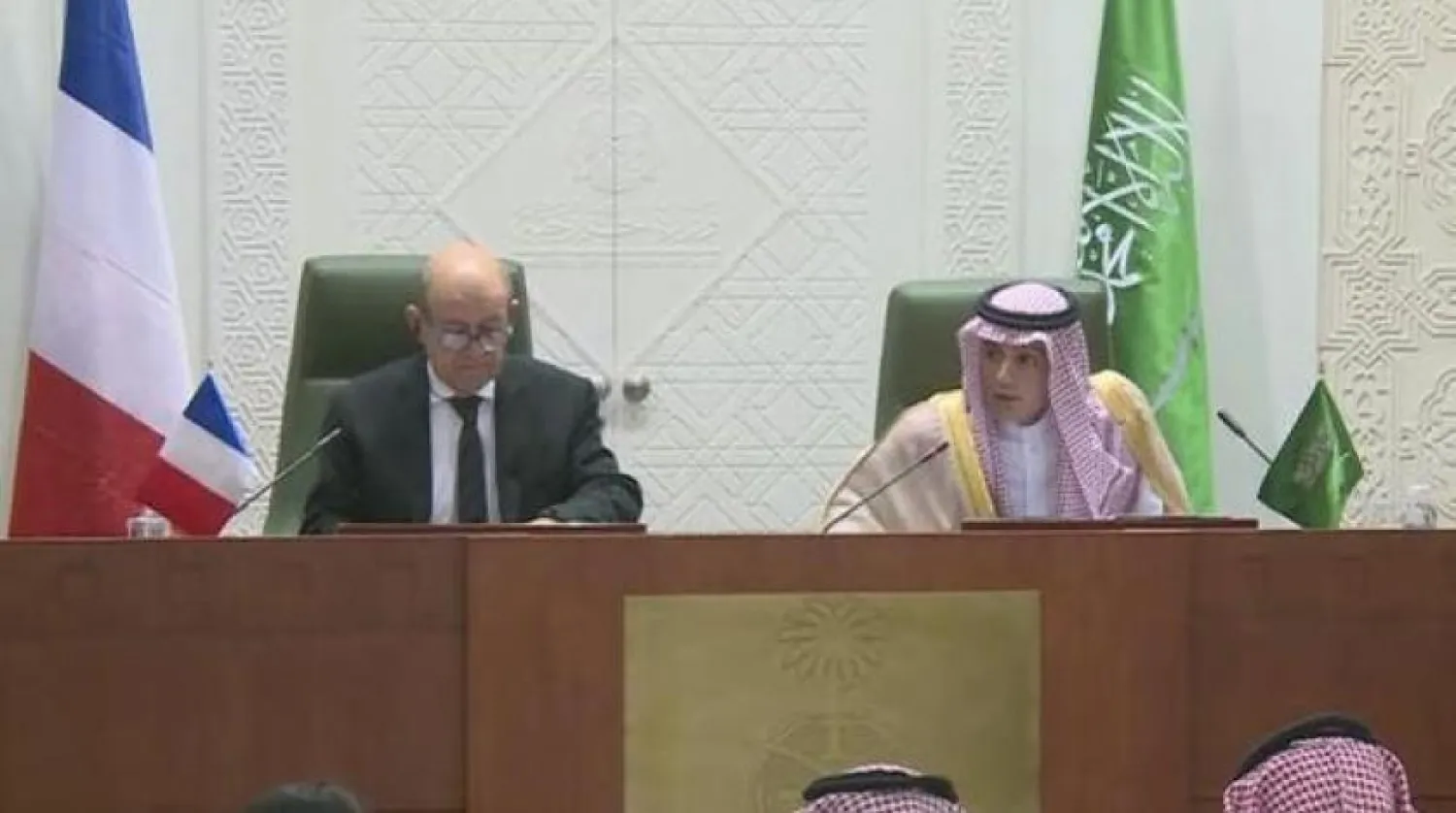Saudi Foreign Minister Adel al-Jubeir described Hezbollah on Thursday as a "first-class terrorist organization" that should lay down its arms and respect Lebanon's sovereignty.
"Hezbollah has kidnapped the Lebanese system," Jubeir told a joint news conference in Riyadh with French Foreign Minister Jean Yves Le Drian.
He accused Hezbollah of destabilising the region, and said "consultations and coordination between peace-loving countries and Lebanon-loving countries are underway to try to find a way that would restore sovereignty to Lebanon and reduce the negative action which Hezbollah is conducting in Lebanon.”
He said discussions with his French counterpart focused on several issues, mainly Iran’s meddling and combatting terrorism.
Jubeir also said accusations by Lebanese President Michel Aoun that resigned Prime Minister Saad Hariri is detained are "rejected and baseless."
He stressed it is up to Hariri to decide when to return home.
“Hariri lives in the kingdom by his own will and he resigned; regarding his return to Lebanon, it is up to him and his assessment to the security situation (in Lebanon)", Jubeir told the press conference.
As for Le Drian, he expressed concern over Iran’s meddling, saying he discussed with the Saudi FM Tehran’s interference in the region.
He also said discussions focused on the 2015 nuclear deal between Iran and world powers.









